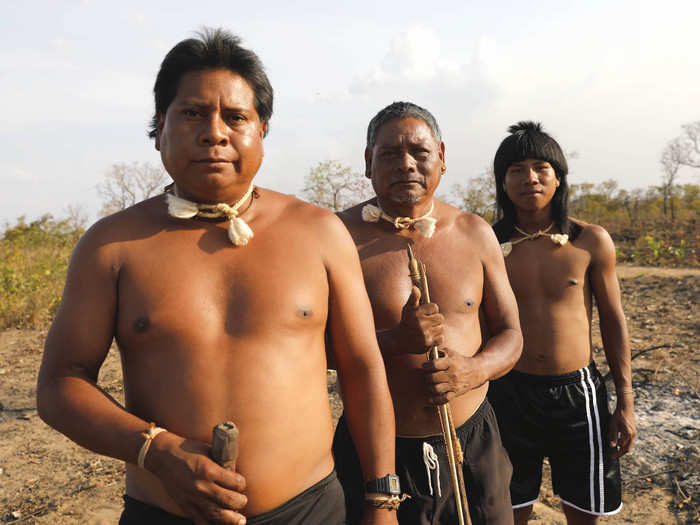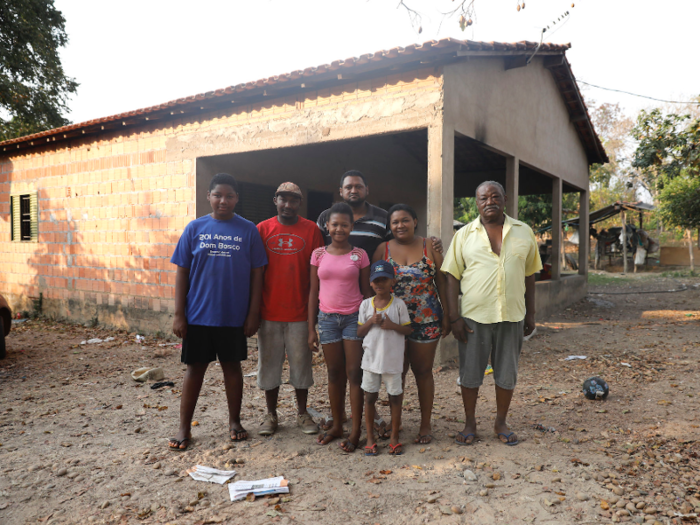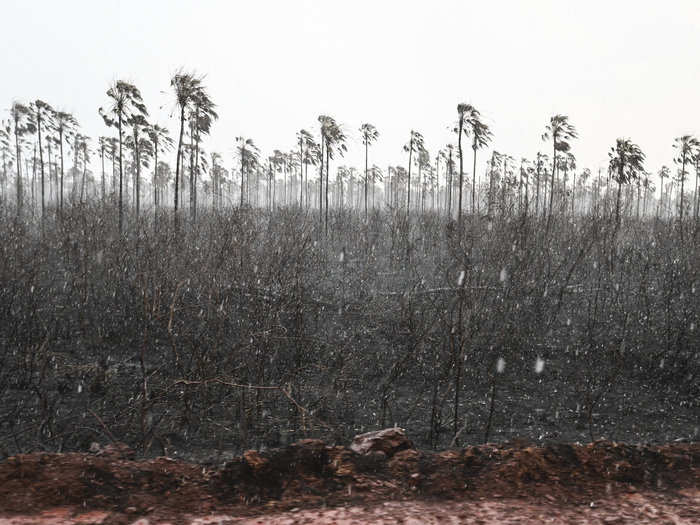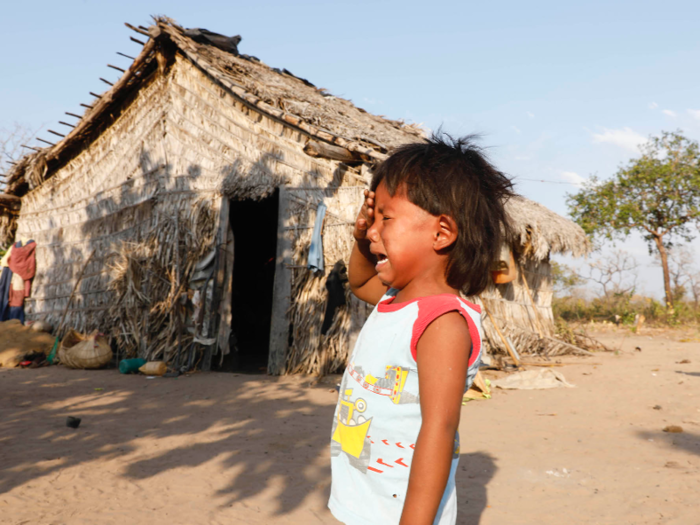- Home
- slideshows
- miscellaneous
- Stunning photos show the reality for indigenous people living in the Amazon as fires burn
Stunning photos show the reality for indigenous people living in the Amazon as fires burn
A government sign tells people the land ahead is protected, but for many indigenous peoples, such signs don't count for much anymore.

In the 16th century, when Portuguese settlers arrived in Brazil, there were about 3 million native people living there. Now there are only about 1 million. Indigenous peoples make up 1% of Brazil's population. Here, an indigenous man sits on a scorched branch.
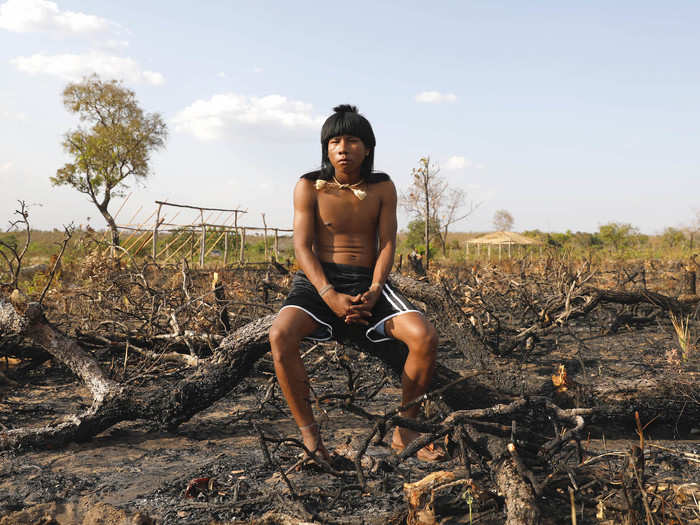
In front sits Chief Hector, 53. They are part of the Xavante tribe. In total, there are about 20,000 Xavante people across Brazil. They live in a tribe of around 100.
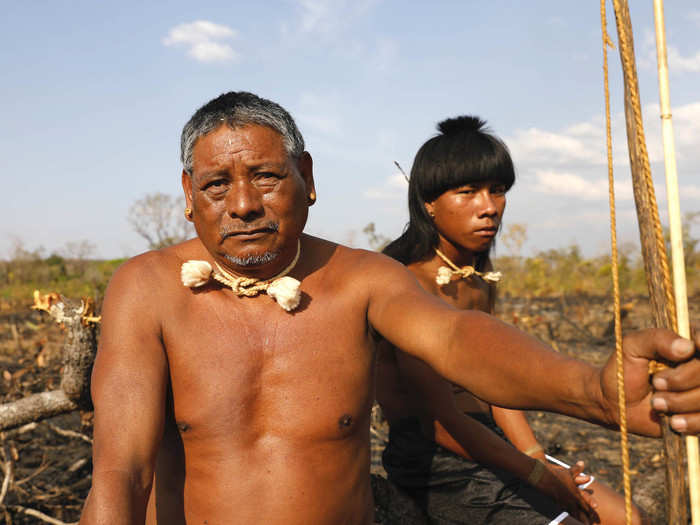
Source: BILD
Paul Ronzheimer from BILD spoke to Hector and members of the tribe. They said the yearly fires have been happening in the Amazon for decades, but it's far worse in 2019. The Xavante don't feel like Bolsonaro cares. Regardless, they will do their best to prevent further damage to the land.
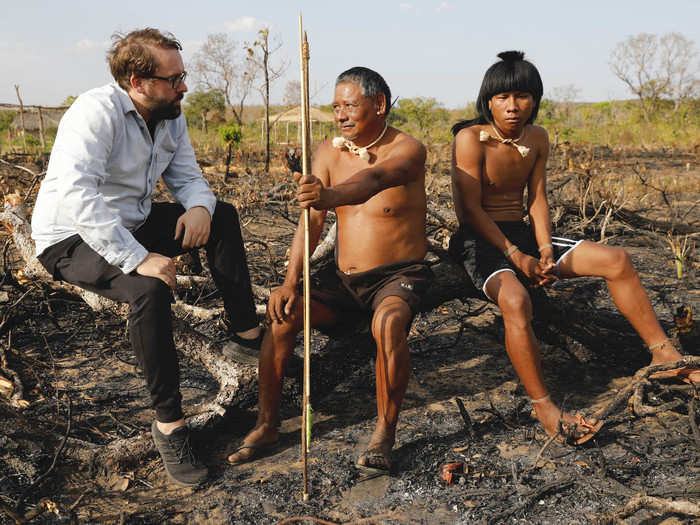
Source: BILD
They hunt with bows and arrows. The fires have put them on high alert, and they said they would attack anyone who came onto their land unannounced.
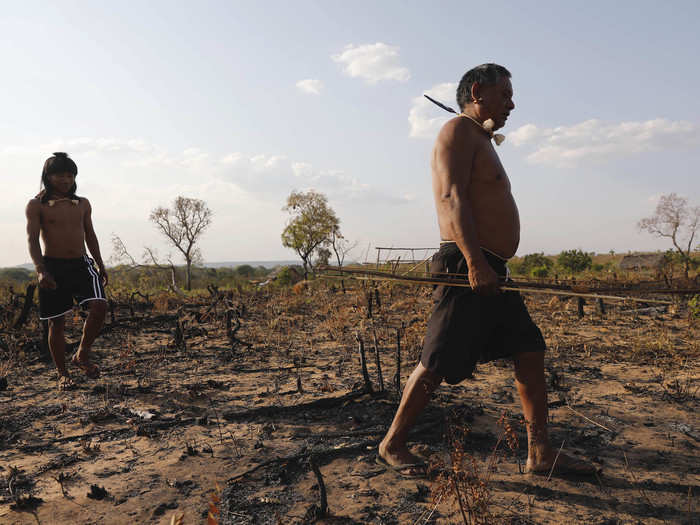
Source: BILD
Chief Hector said the land the farmers were setting on fire was sacred to them. "It's like the church. They're setting fire to our sacred land," he said. "They don't respect us."
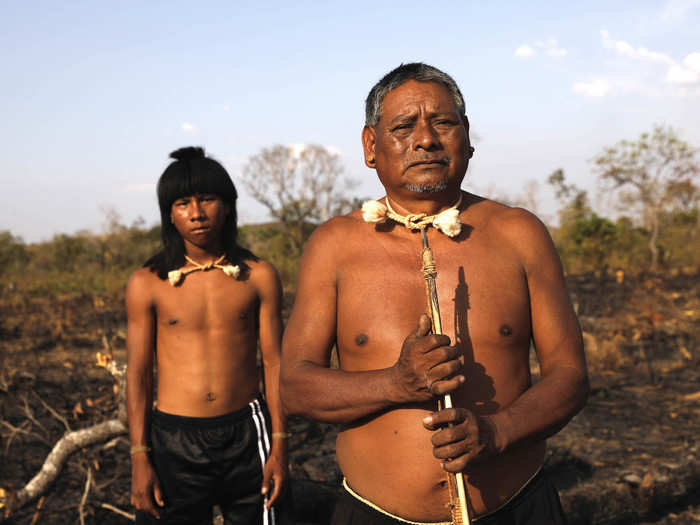
Source: BILD
"We protect it. When we see the smoke, we follow it to defend the land. So we can see who are the white people starting the fire, and why they're doing it," Hector said.
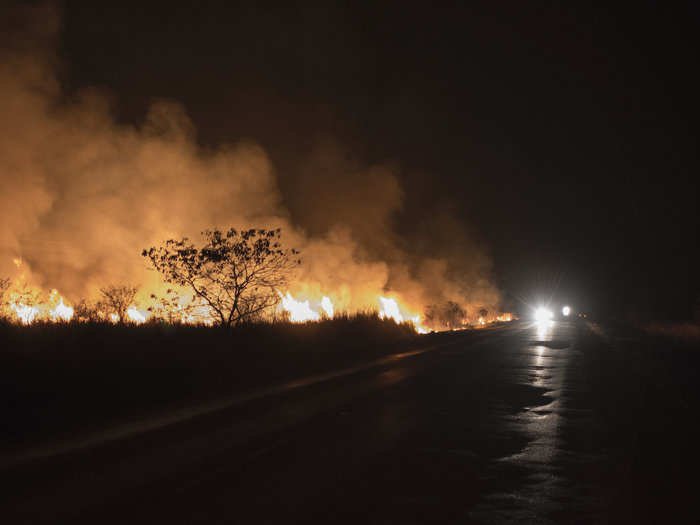
Source: BILD
Most of the fires have been on private land. But in August, 3,500 fires were burning in 148 indigenous territories, according to Brazil's National Space Research Institute.
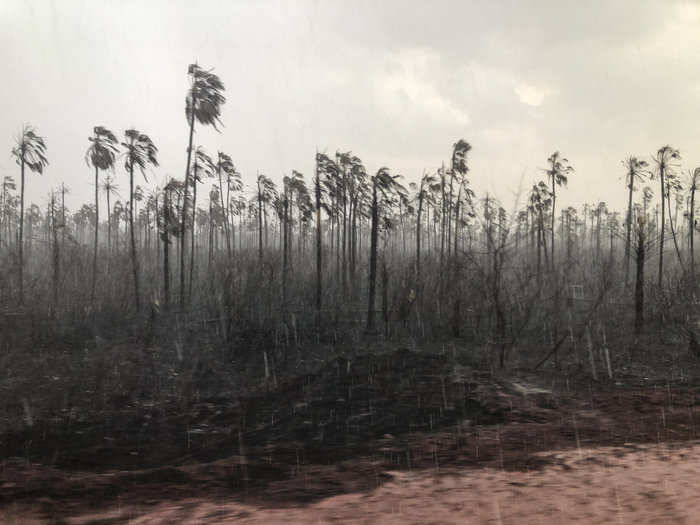
Source: The Atlantic
Some farmers have said that the fires are necessary for farms producing beef and soybeans, and that the blazes aren't as bad as they're portrayed.
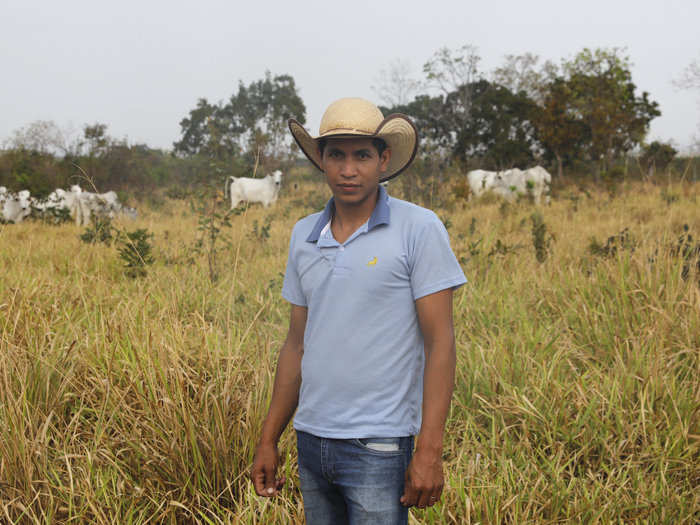
Source: The New York Times
One local president of a rural committee told Rolling Stone that people went to the forest to farm because the government told them go there in the 1970s. But now they are being criticized. "The people in the big cities of Sao Paulo and Rio, they want us to live on picking Brazil nuts."
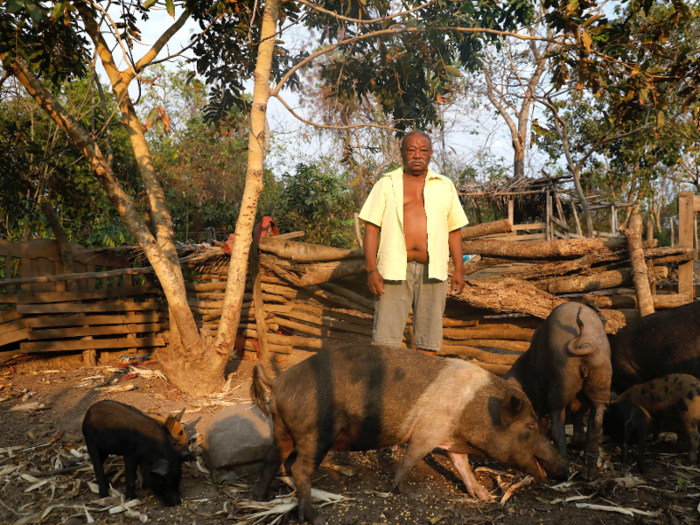
Source: Rolling Stone
It's not just indigenous people who are struggling with the rise in fires — animals are in danger, too. This woman is an activist who is trying to rescue animals. The risk for reptiles and amphibians is particularly high since they rely on cool and wet habitats. Slow moving animals like sloths are also of concern, while larger animals like jaguars can often outrun the flames.
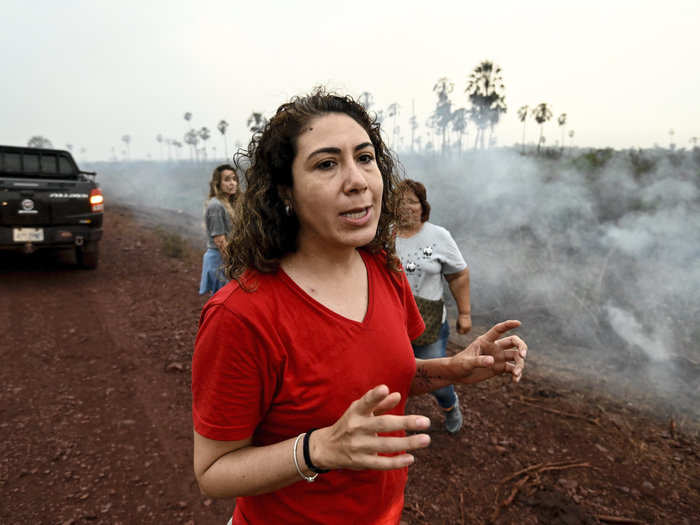
Source: BBC
Brazil isn't the only country where the Amazon is burning. These three journalists with BILD went to Bolivia to document what was happening there. While Bolivia hasn't been as heavily reported on as Brazil, it's had about 40,000 fires across 3,700 square miles of land.
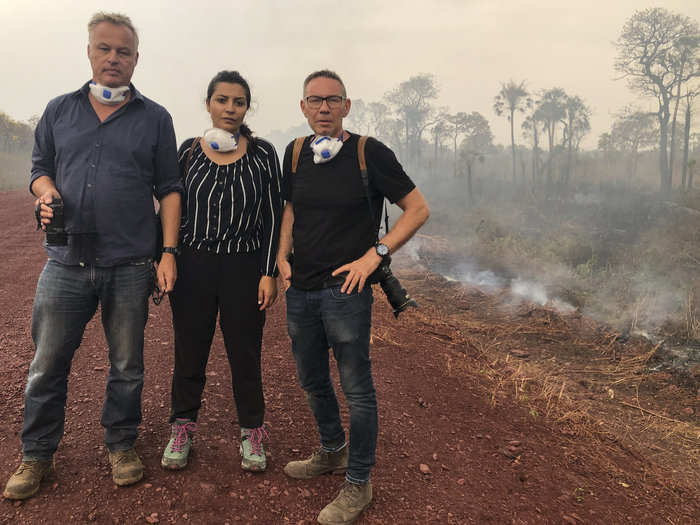
Source: Fox News
Sonia Guajajara, who coordinates the Articulation of Indigenous People of Brazil, told The Atlantic weakened governmental protections and new roads have contributed to the high number of fires because they broke the forest up and made it more exposed to fires.
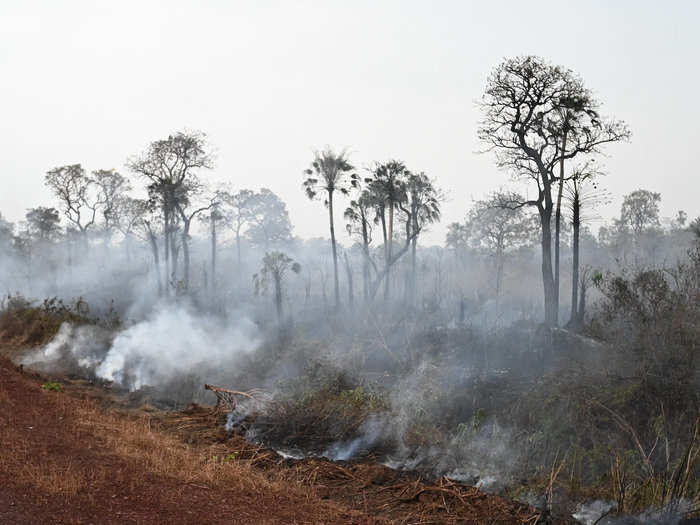
Source: The Atlantic
Here, a man does his best to douse a fire, but with tens of thousands of documented fires, it's an uphill battle.
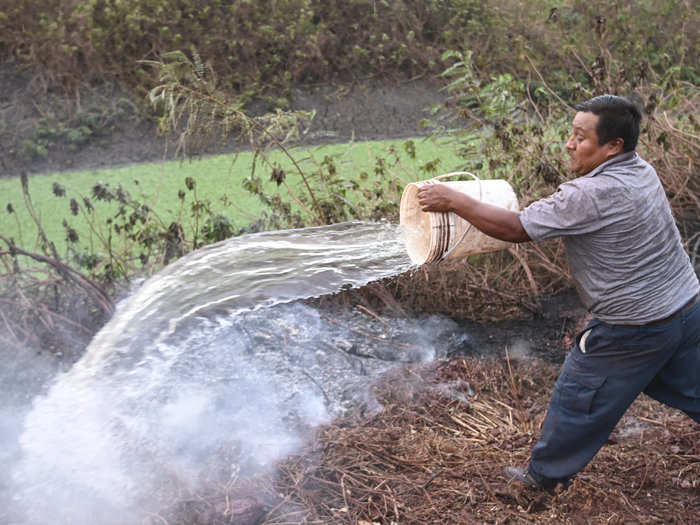
In late August, Bolsonaro bowed to international pressure, and sent soldiers to help fight the fires. He's also banned people from lighting any more fires to clear land.
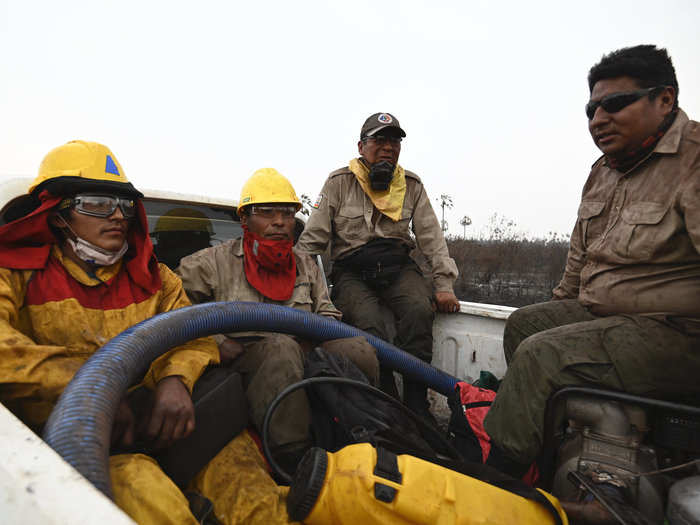
Source: Buzzfeed News
For now, the Xavante will continue on with their daily lives, hunting and picking fruit. But they do this aware that the fires are dangerous for their people. If fires come near the village, homes can burn, Chief Hector said.
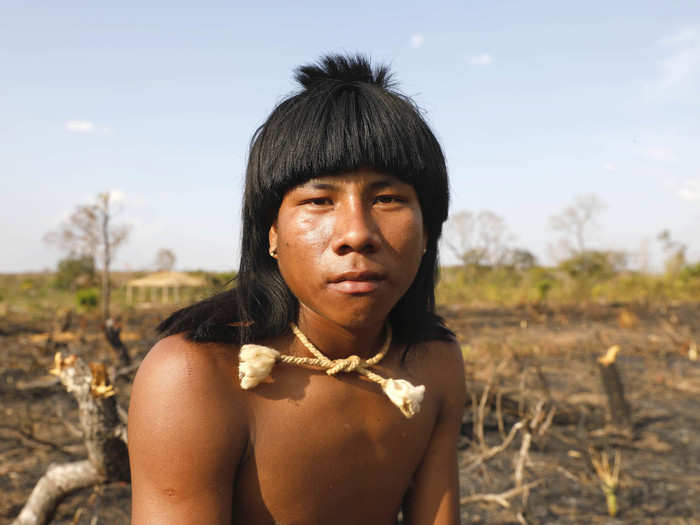
Source: BILD
Popular Right Now
Popular Keywords
Advertisement
